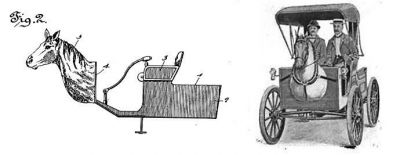Skeuomorphs
Jump to navigation
Jump to search
✎ This article/section is a stub — some half-sorted notes, not necessarily checked, not necessarily correct. Feel free to ignore, or tell me about it.

Or, "That's what it classically looked like, so I'm going to put it into the new design even if it's not necessary"
Where that falls between good usability design because it caters to expecations, terribly pointless anacronistic kitch, or something inbetween, will vary with each case.
Examples
- wall candelabra for electric lights, looking like wide-arm classical candle holders (that needed to be distant from the wall to not burn your house down)
- lightbulbs for candelabra that have the teardrop shape in reference to a flame, even when they don't flicker
- lightbulbs that flicker in imitation of a flame
- pottery embellished with imitation rivets, in reference to pots made of metal (and various other cases like this)
- architectural styles initially required for structure, that stronger materials no longer require, but look comforting or proper
- e.g. greek columns were made structurally unnecessary in their own time, yet certain building aesthetics still commonly use them, primarily in reference (I associate it with the US but I'm sure there are many others(verify))
https://en.wikipedia.org/wiki/Skeuomorph
In software
Music production software often expends serious effort making their interface look like the thing it's imitating.
For... comfort, I suppose.
https://blog.landr.com/skeuomorphism-plugins/